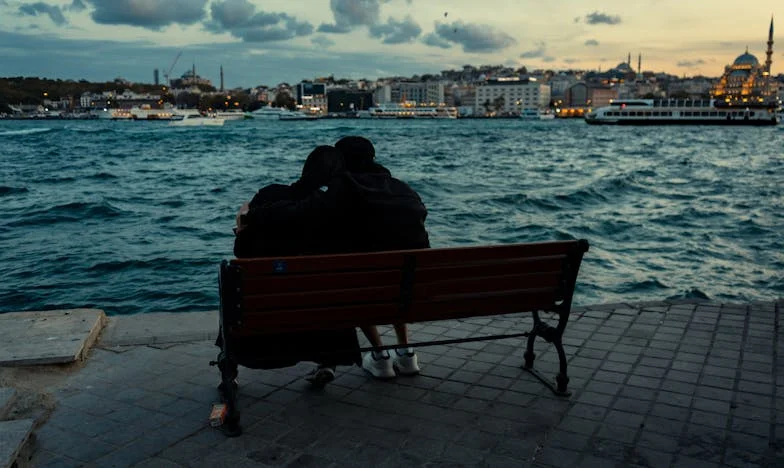Where Silence Lives: A Night That Changed Everything
It was 4:03 a.m. when I woke up, as if pulled violently out of a nightmare I couldn’t remember. My heart hammered against my ribs, and for a second, I thought someone had shaken me awake. But my room was empty—no movement, no sounds. Not the scratch of my cat at the bedroom door, not the grumble of the ancient refrigerator, not even the distant wail of a siren or the muffled hum of early traffic that usually drifted up from the street below. The silence pressed in on me, thick and unnatural, like the whole world was holding its breath.
“Mom?” My voice was barely more than a whisper, automatically reaching out for a comfort that wasn’t there. She’d moved out three months ago, after one fight too many with my dad. The apartment had never felt emptier than it did right now, in this suffocating quiet. I wrapped my arms around myself and sat up, trying to shake off the sense of dread. It wasn’t supposed to be like this. I was twenty-three, living in Minneapolis, finally with my own place—even if it was just a one-bedroom with peeling paint and neighbors who played EDM at 2 a.m. But tonight, the silence was a monster crouched at the foot of my bed.
I slid out of bed, my bare feet cold against the hardwood. The city outside my window was cloaked in darkness, every window black, every streetlamp haloed in fog. I checked my phone: no notifications, no texts, not even a spam email. It was like the world had forgotten me. That thought made my throat tighten. I pressed a hand to my chest, breathing slow and shallow, fighting the panic I’d carried since the night my parents’ shouting had echoed through our house one last time.
“You never listen to me! You never cared what I wanted!” Mom’s voice, sharp and trembling, replayed in my mind. Dad’s reply, bitter and broken: “I’m doing my best! You think it’s easy? Supporting you both?” The crash of a coffee mug against the wall, the finality in Mom’s footsteps as she walked out, suitcase in hand. I’d told myself I was relieved for the quiet after she left, but this—this silence was different. It wasn’t peace. It was emptiness.
I wandered into the kitchen and poured a glass of water, hands shaking. My cat, Muffin, usually glued to my ankles, was nowhere in sight. I called his name, but even his small presence was absent. In the oppressive stillness, I felt every crack in my life: the friends I’d drifted from after college, the job I hated at the insurance call center, the boyfriend who’d ghosted me last fall. I was so tired of pretending I was okay, of posting filtered photos and breezy captions, of telling my dad I was “doing great” every Sunday when he called and asked, his voice weighed down by regret.
I remembered the night I’d found Mom crying in her car outside Target, just weeks before she left. “I can’t do this anymore, Ronnie,” she’d whispered, using the nickname only she called me. “I need—just—somewhere quiet. Somewhere I can breathe.” I hadn’t understood then. I was angry, convinced she was just running away. But now, sitting in the kitchen with the hum of the fridge finally breaking the silence, I wondered if she’d just been searching for the peace I was suddenly desperate for myself.
A sharp knock at the door jolted me. My heart leapt—who the hell would be here at this hour? I tiptoed over and peered through the peephole. It was Dad, in his old Vikings hoodie, looking older and more exhausted than I’d ever seen him. I hesitated before opening the door, but when I did, he barely met my eyes.
“Veronica—sorry, Ronnie. I couldn’t sleep. Thought maybe you couldn’t, either.”
He stepped inside, shuffling awkwardly. We stood in the half-lit hallway, the distance between us suddenly enormous. “It’s too quiet,” he said, voice cracking. “I just… I don’t know what to do with myself anymore.”
I wanted to be angry at him—for making Mom leave, for making me the go-between, for always expecting me to be the strong one. But looking at him now, I saw someone just as lost as I was. Silence had followed us both, haunting our separate apartments, settling into the cracks of our conversations.
We sat at the kitchen table, the same table where he’d once helped me with algebra homework, where Mom used to set out pancakes on Sundays. For a long time, we said nothing. Then, quietly, he asked, “Do you ever feel like you’re just… waiting for something to change?”
I nodded, tears burning in my eyes. “Every day. I keep thinking it’ll get better—if I get a new job, or make new friends, or if Mom comes back. But nothing really changes.”
He reached across the table and took my hand, his fingers rough and warm. “I miss her, Ronnie. I miss us. But I don’t know how to fix it.”
I squeezed his hand, my own trembling. “Maybe we can’t fix everything. Maybe we just… try to be a little less alone.”
We sat there, father and daughter, two broken people in a city that never really sleeps, listening to the hum of the fridge and the distant, tentative return of traffic outside. The silence wasn’t gone—but it felt a little less heavy.
As dawn crept over the city, painting the walls with pale gold, I realized peace wasn’t something you found and kept. Maybe it was something you built, slowly, out of broken nights and honest conversations, and the courage to reach out when the silence grew too loud.
I still don’t know if I’ll ever feel truly at peace. But maybe that’s not the point. Maybe the real question is: how do we find each other in the silence, when the world feels like it’s standing still?
